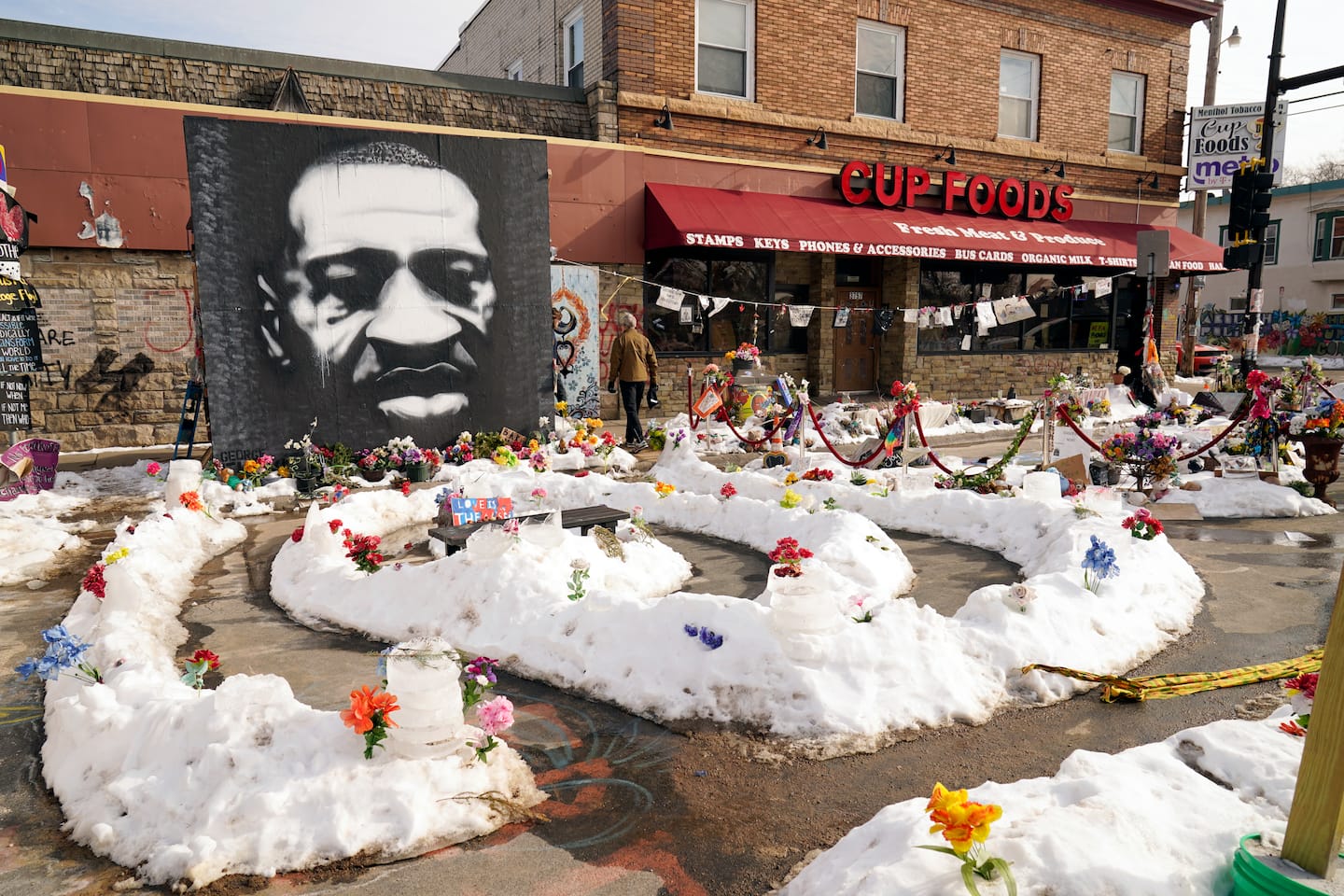The jury for the trial in George Floyd’s killing must have Black members

In presiding over jury selection in Chauvin’s case, Hennepin County District Judge Peter A. Cahill’s most important test for jurors will be simple: “Can you set aside what you have heard and decide the case based only on the evidence presented?”
Yet no sentient human being should be able to forget watching the agonizing video of Floyd’s death, nine excruciating minutes with the White police officer’s knee pressing on the Black man’s neck. The incident sparked the largest social justice movement in U.S. history — focused on anti-Black racism. Now there are two competing imperatives: Chauvin deserves a fair trial and the impartial jury guaranteed to him by the Constitution. Black people deserve representation in the process.
The Supreme Court has never held that Black people are required on a specific jury. The Constitution simply prohibits their exclusion from the pool of possible jurors. But the court has also stated that in “race-related” cases, it’s useful to have African American jurors because “public confidence in the integrity of the criminal justice system is essential for preserving community peace.”
Race is — and should be — an imperfect proxy for how a juror will vote. But no one should imagine that either the prosecution or defense will be colorblind during the three-week jury selection process.
Cahill must pay close attention to race, as well. He should closely scrutinize the selection process to assure that African Americans are not only in the pool of prospective jurors but that they are also included among the 12 people who will sit in judgment of Chauvin. This should not be difficult in a city where Blacks make up approximately 20 percent of the population.
But there are reasons to worry that jury selection is being structured in a way that might reduce the number of Blacks who are found qualified to serve on Chauvin’s jury. Prospective jurors were sent a questionnaire that sought some obvious information, such as whether they have connections to the events of Floyd’s death. Other inquiries, however, ventured well beyond the ability to be fair in Chauvin’s trial. Prospective jurors had to reveal how much they agree with statements such as “Blacks and other minorities do not receive equal treatment as whites in the criminal justice system” and “I support defunding the Minneapolis Police Department.” Written answers were required to questions such as “Do you believe our criminal justice system works. Why or why not?”
Cahill should not remove potential jurors who respond honestly to these questions out of concern that they cannot be objective. Screening out jurors who are critical of the criminal legal system goes beyond what the law requires and would dramatically reduce the eligibility of African Americans to serve. Polls demonstrate that Black people have more negative experiences with the police than Whites and unsurprisingly are more suspicious of them.
Even if the judge does not disqualify jurors, each side gets a certain number of “peremptory strikes,” which allow them to exclude a potential juror for almost any reason. As a rookie prosecutor, I was trained to strike people who were very religious, out of concern they might be hesitant to sit in judgment of another person, and scientists, because they might have too high a standard of proof.
The Supreme Court has ruled that prosecutors and defense lawyers cannot employ race as the basis for using their peremptory strikes to remove potential jurors. This might win the prize for the most disregarded constitutional rule ever.
Studies show prosecutors often use their strikes to get rid of African American jurors. This move can be more rational than racist, because in some cases White jurors probably are more likely to convict.
In the Chauvin prosecution, however, the usual racial presumptions are flipped: The more Blacks on the jury, the better it is likely to be for prosecutors. Among other considerations, prosecutors need jurors who will not give the defendant a break just because he is a police officer. That favors African Americans. Judges typically instruct jurors to evaluate police officers by the same standard as any other witness and not give them extra credit because they are cops.
The challenge for Cahill will be ensuring that defense lawyers don’t use their peremptory challenges to keep Blacks off the jury. Jurors are told to use their life experiences and common sense when evaluating evidence. The life experiences of African Americans — including their dealings with the police — are as valid as those of any other group, including White people.
The Supreme Court has stated that allowing Blacks to serve on juries strengthens “public respect for our criminal justice system and the rule of law.” If African Americans are excluded from Chauvin’s jury box, it will be another sign that the criminal legal process does not deserve their respect.
Read more:






